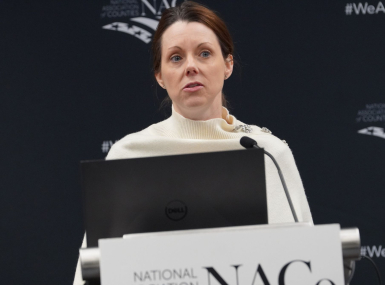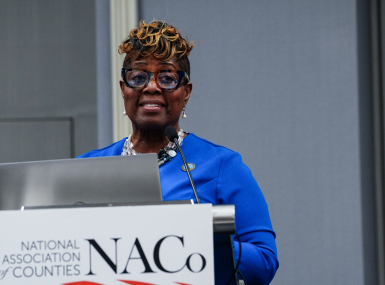U.S. House of Representatives introduces Supporting Foster Youth and Families through the Pandemic Act
Author
Upcoming Events
Related News

Key Takeaways
On August 7, Representatives Danny Davis (D-Ill.) and Jackie Walorski (R-In.), the Chair and Ranking Member of the U.S. House Committee on Ways and Means Subcommittee on Worker and Family Support, introduced a bipartisan proposal to support the child welfare system as the COVID-19 pandemic continues. The legislation, the Supporting Foster Youth and Families through the Pandemic Act (H.R. 7947), would increase funding and create temporary flexibilities for programs targeting older foster youth, child abuse prevention, and kinship care providers.
Counties fully or partially administer the child welfare system in 11 states. For these county child welfare agencies, COVID-19 has caused new challenges and disruptions in ongoing efforts to implement new federal requirements for prevention services, connect children with kinship care givers, and support home visiting. Additionally, the COVID-19 pandemic has left young people in transition from foster care to adulthood particularly vulnerable, many of whom already face significant life challenges.
H.R. 7947 seeks to shore up resources and important flexibilities for states and counties to address these issues. For instance, the legislation substantial $400 million increase in funding for programs supporting older foster youth and temporarily increases the age of eligibility to age 26, as well as increasing flexibility in the use of education and training vouchers for housing. The legislation also requires states to allow youth who would otherwise “age-out” of the foster care system during the pandemic to remain in care and eases education and work requirements for them to do so.
The legislation also provides more options and an additional $75 million in funding for states and counties to provide services that support family preservation, family reunification, adoption, and other supportive services. Additionally, the legislation allows and provides funding for the deployment of virtual technology in child welfare courts and home visiting programs.
Counties support this bipartisan legislation, which will help our child welfare agencies adapt to the operational challenges during the pandemic as well as the impact of the public health emergency on the vulnerable populations we serve.

Attachments
Related News

Congress seeking ‘common-sense solutions’ to unmet mental health needs
Rep. Andrea Salinas (D-Ore.): “Right now, it is too difficult to access providers … and get mental health care in a facility that is the right size and also the appropriate acuity level to meet patients’ needs.”

Federal-level child welfare priorities center on supporting foster youth, families
Child welfare experts outlined current priorities at the federal level, including better supporting foster care youth who age out of the system and recruiting more foster parents, at NACo’s Human Services and Education Policy Steering Committee meeting.

Prince William County transforms crisis care through "No Wrong Door" approach
Prince William County, Va.’s Crisis Receiving Center is bridging the gap between emergency room care and traditional outpatient care in behavioral crisis response and reducing burden on local law enforcement and hospitals.
